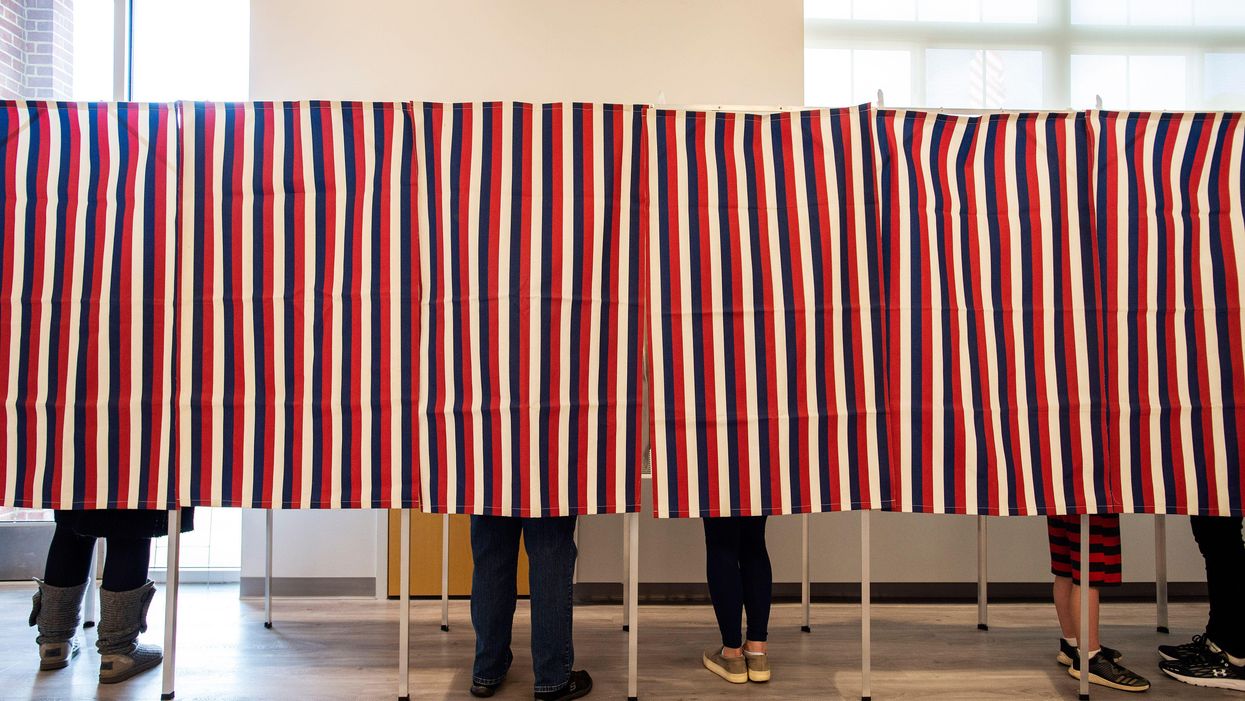Thomas and Addams are co-executive directors of Mormon Women for Ethical Government.
As faith-based advocates for ethical governance, our work is motivated by a core belief: Every individual is a person of great worth. Our love of democratic governance is a natural outgrowth of this, as is our passionate desire to protect it. Good government upholds our rights, reminds us of our responsibilities to each other and protects our civil liberties equally. Democratic government trusts the people with the power to preserve those rights and privileges through the mechanism of the vote.
We believe that we are at a critical juncture in our nation's history — not unlike those we have faced in the past — where the few seek to impose their will upon the many. The freedom to vote is under aggressive threat, and a corruption of this foundational freedom threatens other freedoms that flow from it. Protecting the vote should be our primary national priority, superseding all others, and our senators — elected by the people — have a civic obligation to provide that protection.
In the months leading up to the November 2020 election, a record number of Americans made significant sacrifices to vote and in doing so were able to accomplish what our institutions, including the U.S. Senate, had failed to do: place boundaries around an increasingly reckless administration. Citizens recognized the existential threat our nation faced, and utilized an orderly and peaceful mechanism to remove that threat. They voted.
That their collective votes were an exercise of significant power is clear, because almost immediately the people's authority came under direct attack. Unfounded claims about election fraud, pressure on election officials, race-based propaganda, unjustified lawsuits, demagoguery, attempts to manipulate long-standing electoral processes, and ultimately a violent insurrection — all are visible manifestations of a concerted effort to change the results of a peaceful and legal election.
Following those tragic events, a handful of principled Republican senators joined Democratic colleagues and made efforts to preserve the integrity of our elections and the peaceful transfer of power. But in the last 10 months, the attack on democracy has shifted. Having failed to overturn a past election, politicians at all levels of government now seek to exert undue control over future ones. There is still time to protect democracy, and Congress has the power under the Constitution to protect our future by placing federal protections around our right to vote.
Over the last eight months Mormon Women for Ethical Government has joined an ideologically diverse group of organizations and individuals in making repeated and good-faith efforts to engage with senators about voter rights. In a destructive departure from what was (as recently as 2006) seen as a shared value with bipartisan support, very few Republicans have shown any willingness to even dialogue about voter protection. They have not committed to the work of legislative compromise or co-sponsorship of bills protecting elections or voter rights. Most surprisingly, those who courageously spoke out against the unlawful efforts of the past administration have sought to justify their inaction around voting by claiming superseding allegiances. But nothing should take precedence over the freedom to vote.
As co-leaders of a nonpartisan organization who personally don't always share opinions about policy, we are deeply committed to ethical governance based on collaboration, compromise and cooperation. We have learned how differences can become strengths. Our collaboration is possible because we recognize the profound difference between core values and the social and political structures that have developed to — ideally — implement those values. Nationally these include concepts like bipartisanship, the protection of states' rights and legislative mechanisms like the filibuster. But these only have value if they are invoked as a means to protect and promote our nation's values.
Because these structures have been time-tested, moderating voices don't advocate discarding them in the pursuit of raw power. But at the same time they must not be used — as they were to protect slaveholders or deny basic civil rights — to aggregate power in the hands of the few or to trample on the rights of the underrepresented.
Extending voter rights will achieve the opposite; this extension serves to disperse power and to make leaders and parties more accountable, not less. The right to vote empowers our citizens to protect what is most precious: the Constitution, the rule of law, responsive government and individual rights. There is no justification for affording states the right to oppress their own citizens or privileging procedural means like the filibuster if what is at stake is a foundational national commitment to voter rights.
This week, the Freedom to Vote Act will come up for a vote before the Senate and the John Lewis Voting Rights Advancement Act will follow. These bills offer real and significant protections for voters. We plead with senators of both parties to prioritize the people and do what is necessary to ensure that future elections are safe and citizens have the freedom to vote. In November millions of citizens took our responsibilities seriously and we acted to defend your authority and our democracy. Now, almost one year later, we ask that you act to defend us. Protect the freedom to vote.



















Trump & Hegseth gave Mark Kelly a huge 2028 gift